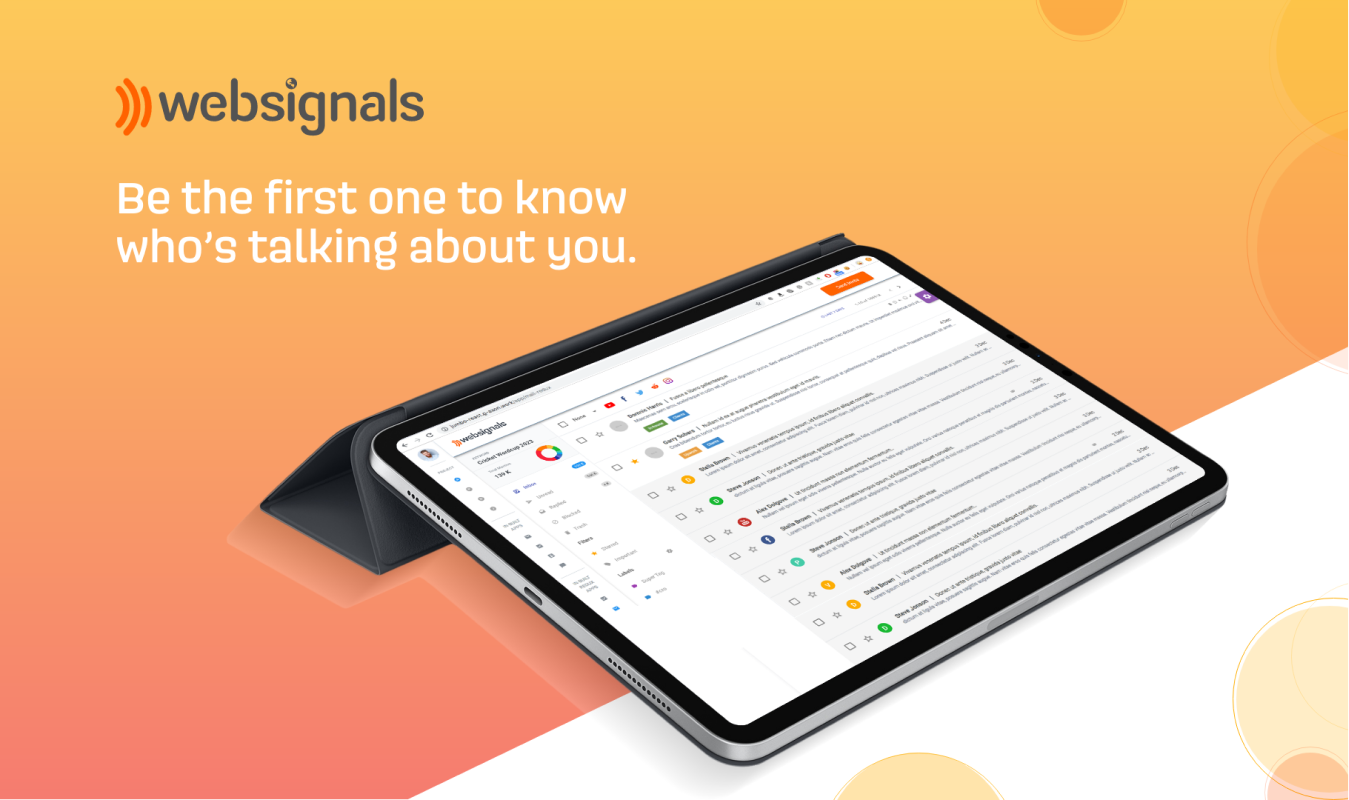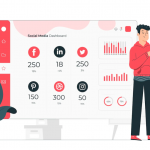Social media listening, tracks online conversations, comments, and feedback related to a particular brand, product, service, or topic on social media platforms. Social media listening aims to gain insights into what people say about a company, product, or industry and use that information to make business decisions.
Various social media marketing tools and platforms can help with social media listening, including social media analytics tools, monitoring dashboards, and sentiment analysis tools. These tools can help businesses track mentions of their brand or product, monitor customer feedback and complaints, and identify trends and patterns in customer behavior. You can jump into the conclusion that today the optimum utility of social listening tools can drive a full-funnel influencer marketing for any business product and services.
Contents
The Impact of Social Listening on Customer Experience
Social listening can significantly impact customer experience by giving businesses valuable insights into what customers say about their brands, products, and services. Here are some points on how social listening can impact customer experience:
Improved Customer Engagement:

Social listening allows businesses to monitor customer feedback and respond quickly. By promptly addressing customer concerns and questions, businesses can improve customer satisfaction and build stronger relationships with their customers.
Personalized Customer Experience:

Businesses can gain insights into customer preferences and needs by analyzing social media conversations. This information can help organizations personalize their customer experience, tailoring their products, services, and marketing strategies to meet the specific needs of their target audience.
Better Customer Retention:

Social listening can help businesses identify and address customer pain points, improving overall customer experience. This, in turn, can lead to increased customer loyalty and retention.
Enhanced Product Development:

Businesses can gain insights into what customers want and need by analyzing customer feedback and conversations. This information can inform product development and help organizations create products and services that better meet the needs of their target audience.
Competitive Advantage:

Social listening can help businesses stay ahead of their competitors by monitoring their activities and identifying industry trends. By staying on top of the latest trends and innovations, enterprises can develop better products and services that are more likely to meet the needs of their customers.
How To Engage Customers Through Social Listening?
Engaging with customers through social listening encapsulates keeping an active track on social media platforms for customer feedback and opinion related to your products, brand and services and then responding in a way that builds stronger relationships with your customers. Here are some ways to engage your customers through social listening:
Respond Promptly:

When customers reach out to you on social media, it’s important to respond promptly. Even if you don’t have an immediate solution to their problem, acknowledging their concerns and letting them know that you’re working on a solution can go a long way in building trust and loyalty.
Personalize Your Responses:

When responding to customers on social media, try to personalize your responses as much as possible. Use their name, acknowledge their specific concerns, and offer solutions tailored to their needs.
Show Appreciation:

When customers provide positive feedback or share their experiences with your brand, take the time to thank them and show your appreciation. This will help you to build up a community that will revolve around your brand and enhance a great degree of customer engagement.
Provide Value:

When engaging with customers on social media, try to provide value in every interaction. Whether answering their questions, providing helpful information, or offering special promotions or discounts, providing value can help build trust and strengthen your customer relationship.
Monitor Your Competitors:

Social listening isn’t just about monitoring your brand; it’s also about keeping an eye on your competitors. By monitoring what your competitors are doing on social media, you can identify areas where you can differentiate yourself and provide value to your customers.
How to Use Social Media Listening for Brand Reputation Management?
Social media listening is a powerful tool for brand reputation management, as it allows businesses to monitor what people say about their brand, products, and services online and respond promptly and appropriately. Here are some steps to follow when using social media listening for brand reputation management:

Set up a Social Media Listening Tool:
Various social media listening tools can help businesses monitor their brand’s reputation online. These tools allow businesses to track brand mentions, monitor sentiment, and identify potential issues or crises.
Monitor Brand Mentions:
Use your social media listening tool to monitor brand mentions on social media platforms. Look for positive and negative mentions, and pay attention to any emerging trends or patterns.
Respond to Feedback:
When you encounter negative feedback or complaints, responding promptly and appropriately is essential. Responding quickly can help defuse the situation and show that you take customer concerns seriously.
Take Action on Feedback:
When you receive feedback, address the underlying issues. This could involve changing your products or services, improving customer support, or implementing new policies or procedures.
Monitor Competitors:
Keep an eye on what your competitors are doing on social media, and use this information to improve your brand reputation management strategies. Identify areas where you can differentiate yourself from your competitors and provide additional value to your customers.
Monitor Industry Trends:

Stay up-to-date on industry trends and news, and use this information to develop better brand reputation management strategies. Being proactive and addressing potential issues before they become major problems can help protect your brand’s reputation in the long run.
Why Social Media Listening is Important for Social Media Marketing?
Social media listening is important for marketing because it provides businesses with valuable insights into what their customers say about their brand, products, and services. Here are some reasons why social media tools are essential for social media marketing:
Better Understanding of Customer Needs:
By monitoring social media conversations, businesses can gain a better understanding of their customers’ needs, preferences, and pain points. This information can help businesses create more targeted and effective social media marketing campaigns.
Improved Customer Engagement:
Social media listening allows businesses to respond in real time to customer feedback and concerns. This can help improve customer satisfaction and build stronger relationships with customers, leading to increased engagement on social media.
Identifying Industry Trends:
Social media listening can help businesses stay on top of industry trends and identify new opportunities for social media marketing. Businesses can create more relevant and engaging content for their social media followers by identifying emerging trends and topics of interest.
Competitive Analysis:
Social media tools can also help businesses monitor their competitors’ social media activities and identify areas where they can improve themselves. By staying on top of their competitors’ actions, businesses can develop more effective social media marketing strategies.
Crisis Management:

Social media listening can also be used for crisis management, allowing businesses to quickly identify and address potential issues before they become major problems. By monitoring social media conversations and responding promptly to negative feedback, organizations can protect their brand’s reputation and maintain customer trust.
How Can Websignals Help You in Social Media Listening?

Brand Monitoring:
You can use social media monitoring tools like Websignals to monitor mentions of your brand across different online platforms. This can help you identify positive and negative feedback, customer complaints, and potential issues that must be addressed.
Competitor Monitoring:
Websignals can also be used to monitor what people are saying about your competitors online. This can help you identify gaps in your own offering, stay on top of emerging trends, and benchmark your performance against your competitors.
Trend Analysis:
Websignals can help you identify emerging trends in your industry, such as new product launches, changes in customer preferences, or shifts in the competitive landscape. By staying on top of these trends, you can adjust your strategy accordingly and stay ahead of the curve.
Influencer Identification:

Websignals can help you identify influencers discussing your brand or industry. Engaging with these influencers can amplify your message and increase your reach.
Social listening tools like these can help you monitor and track customer sentiment and stay on top of what people say about your brand online. Depending on your specific needs and budget, one of these tools or another social listening platform is a valuable addition to your marketing toolkit. Websignals is undoubtedly a perfect social media marketing tool for you.
Hope this information is useful to you.
Happy Reading!




